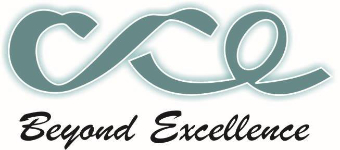
The world is fighting a global pandemic-Covid 19 which has adversely affected the global economic activities resulting in an economic downturn.
The government put in place a raft of fiscal measures through Tax Laws (Amendment) Act, 2020 targeting both individuals and business entities to cushion Kenyans from the economic effects of COVID – 19 epidemic. These include,
i) Reducing VAT rate from 16% to 14%
ii) Adjusting the PAYE top marginal rate from 30% to 25%
iii) 100% tax relief for persons earning below Kshs. 24,000 per month
iv) Lowering the corporation tax rate to 25% from 30%
However the President, H.E. Uhuru Kenyatta on 29th September 2020 announced that;
i) The PAYE to marginal rate to resume at 30% starting January 2021.
ii) 100% tax relief reversed at the start of January.
iii) VAT and corporate tax rate changes are to be effected in January 2021.
We await Legislation to confirm the changes mentioned.
The above measures and the economic effects of the pandemic negatively impacted tax collections. In view of the above, several tax measures and policies have been revised and newly implemented by the Kenya Revenue Authority.
The KRA has introduced several programs and policies in order to further enhance revenue collections such as;
1) Data-driven compliance
2) Tax dispute resolutions and Independent Review of Objections
3) ISCC and ICMS (Integrated Scanner Command Centre and Integrated Customs Management System)
4) Mobile App and M-payments
5) New tax measures and expansion of the tax base.
6) Tax treaties and completion of agreements with several states.
Some of the new tax measures effective 1st January 2021 include;
1) Minimum tax
2) Digital Service Tax
3) VAT Regulations 2020 (Electronic Tax Invoice)
4) Voluntary Disclosure Programme
Summary of the KRA collection performance.
MINIMUM TAX – Effective 1st January 2021
• 1% of gross turnover.
• Applies ONLY if higher than the instalment tax calculated.
• Due date is 20th of the 4th month, 6th month, 9th month and the 12 months following the year-end (similar to instalment tax dates).
• Incomes exempted from Minimum Tax;
o Employment income
o Income subjected to Residential Rental Income Tax
o Income subjected to Turnover Tax
o Income subjected to Capital Gains Tax
o Income of the extractive industry
o Income exempted under the Income Tax Act.
• It will operate in the same manner as instalment taxes.
In some states, it is referred to as Alternative Minimum Tax (AMT) and is applied in countries like the U.S, Taiwan and South Korea. In Africa, Ethiopia and South Sudan.
Effects of Minimum Tax to taxpayers;
o Computation of two separate taxes to determine what is to be paid will be time-consuming and costly.
o It goes against the KRA idea of simplified tax regimes.
o Unclear on interest income earned and dividend incomes.
o Residential rental income over Kshs. 15m p.a will be subjected to the minimum tax.
o Commercial rental will be subjected to MT.
o Professional and management service providers will pay 1% of the gross income in addition to the withholding taxes already deductible by customers.
o Delays in processing tax credit refunds if any means bearing further cash outflows.
o Losses carried forward as well as investment deductions are applicable, however, losses that exceed 10 years will require Commissioner Approval.
The tax base for computing instalment taxes
• 110% of previous years self-assessed tax
• 25% of the current year estimated tax
Illustration Kshs Kshs
Business turnover Jan to March 2021 10,000,000
Minimum tax payable 1% by 20th April 2021 100,000
Profit for the period as at 31st March 2021 400,000
Projected profit for the year 2021 1,600,000
Tax payable for 2021 @ 30% 480,000
Instalment tax payable @ 25% tax of current year 120,000
Profit for the year 2020 1,500,000
Tax paid in 2020 @ 25% 375,000
Instalment tax payable @ 30% of (110% of previous year profits) 123,750
TURNOVER TAX (TOT)
• Charged on gross turnover between Kshs 1 million and Kshs. 50 million p.a.
• Effective rate 1st April 2020 is 1% (Previously 3%).
• Does not exempt you from VAT. VAT registration threshold is Kshs. 5 million.
• Taxpayer who wish to opt-out of TOT, are required to obtain written approval from the Commissioner.
• Income subjected to Turnover Tax will not be subjected to Minimum Tax.
• Submission is 20th of the following month. A similar application to VAT return submission.
Incomes exempted from Turnover Tax;
• Incomes exempted under the Income Tax Act.
• Employment income
• Rental income
• Management and professional services
• Income subjected to final withholding tax
• Nonresident taxpayers.
Penalties applicable under TOT;
• Late filing penalty is Kshs. 1,000 (effective 25th April 2020)
• 5% penalty for late payment of tax
• 1% interest per month for unpaid tax
MONTHLY RESIDENTIAL RENTAL INCOME TAX (MRI)
• Effective 1st January 2016.
• Payable by resident persons (individuals and corporates).
• Charged on gross rental income between Kshs. 288,000 (24,000 per month) and Kshs. 15 million p.a
• Rate of tax is 10% on gross rental income received.
• Returns have to be filed by the 20th of each of the following month.
• Each taxpayer has to register to his iTax portal all the property details which include tenant pin, plot numbers and rental earned.
Penalties applicable under MRI;
• Higher of Kshs. 1,000 or 5% of the tax due for late submission by individuals
• Higher of Kshs. 20,000 or 5% of the tax due for late submission by corporates
• 5% penalty for late payment of tax.
• 1% interest per month for unpaid tax
DIGITAL SERVICE TAX (DST)
• Income derived or accrued in Kenya from SERVICES offered on the digital market place.
• The digital services tax which is computed at the rate of 1.5% of the gross transaction value is payable when transferring payment to the service provider.
• Agents to be appointed by the Commissioner.
• Digital market place is defined “as a platform that enables, by electronic means, direct interaction between buyers and sellers of goods and services”
• DST can be claimed against tax liabilities for resident companies.
• Foreign and non-resident companies will be required to appoint local tax agents who will account for the taxes.
VAT regulations on supply of digital services
• Scope of taxable supplies;
o Downloadable digital content including downloading of mobile applications, e-books and movies
o Subscription-based media including news, magazines, journals
o Streaming of TV shows and music, podcasts and online gaming
o Software programs including downloading of software, drivers
o Website filters and firewalls
o Electronic data management including website hosting, online data
o Warehousing, file-sharing and cloud storage services
o Supply of music, films and games
o Supply of search-engine and automated helpdesk services including; supply of customized search-engine services
o Tickets bought for live events, theatres, restaurants etc. purchased through the internet
o Supply of distance teaching via pre-recorded medium or e-learning including the supply of online courses and training
o Supply of digital content for listening, viewing or playing on any audio, visual or digital media
o Supply of services on online marketplaces that links the supplier to the recipient, including transport hailing platforms
o Any other digital marketplace supply as may be determined by the Commissioner
The Regulations require that a person supplying taxable services through a digital marketplace should register for VAT in Kenya where:
• The digital marketplace supplies are supplied by a person from a place of an export country to a recipient in Kenya in a B2C (Business to customer) transaction
• The person is conducting business in Kenya as provided under Section 8(2) of the VAT Act and any of the following circumstances are present:
o The recipient of the supply is in Kenya
o The payment made to the supplier in the export country, for the supply of digital marketplace supplies, originates from a bank registered or authorized in Kenya, under the Banking Act, Cap 488
o The recipient of that digital marketplace supply has a business, residential or postal address in Kenya
A non-resident person who makes B2C supplies of taxable services to a recipient who is in Kenya is required to register for VAT through a simplified VAT registration framework and declare and pay. If such a person is not able to register under the simplified VAT registration framework, they can appoint a tax representative to account for the VAT on their behalf. The Regulations do not provide for any registration threshold.
The Regulations deem a digital marketplace supply to have been made in Kenya where:
• The recipient of the supply is in Kenya.
• The payment proxy including credit card information and bank account details of the recipient of the digital supplies is in Kenya.
• The residence proxy including the billing or home address or access proxy including Internet Proxy address, mobile country code of SIM card of the recipient is in Kenya.
The Regulations do not allow deduction of input tax under the simplified VAT registration framework. This, therefore, implies that the supplier incurs the VAT cost or passes it on to the final consumer making the supply more expensive than it currently is.
In addition to the penalties prescribed under the VAT Act, restrictions of access to the digital marketplace in Kenya will be applied for failure to comply with the provisions of these Regulations.
VOLUNTARY TAX DISCLOSURE PROGRAMME
• 3 years period effective 1st January 2021.
• Tax amnesty – waiver of interest and penalty on outstanding tax liabilities that you voluntarily declare as unpaid over the last 5 years (1st July 2015 to 30th June 2020).
• 100% remission of penalties and interest in the first year of declaration – 2021
• 50% remission of penalties and interest in the second year of declaration – 2022
• 25% remission of penalties and interest in the third year of declaration – 2023
• Agreement entered with the Commissioner to set payment terms. Payments MUST be made within one year of the agreement date.
• Taxpayers under audit, prosecution or notified of the intention to audit will not qualify to apply.
• The process is confidential.
TAX TREATIES AND AGREEMENTS
Agreements effected – Canada (1983), Denmark (1972), France (2007), Germany (1977), India (2016), Iran (2012), Qatar (2014), Norway (1972), Seychelles (2014), South Korea, South Africa (2010), Sweden (1973), United Arab Emirates (2011), United Kingdom (1973) and Zambia (1968).
Agreements not yet effected – East African Community (2006), Kuwait (2013), Mauritius (2012) and Netherlands (2015).
Agreements yet to be Gazetted – Italy, Barbados, China, Singapore, Botswana, Ireland, Nigeria, Saudi Arabia, Thailand and Turkey.
Contacts
CPA Ahmed Yusuf Salyani Managing Partner asalyani@acegroup.co.ke
CPA Mohamed Abdulla Ebrahim Managing Partner mebrahim@acegroup.co.ke
CPA Bilal Aslam Musani Tax Director bmusani@acegroup.co.ke
CPA Mohamed Yusuf Salyani Director – Consulting msalyani@acegroup.co.ke
CPA Mohamed Afzal Mamdani Audit Partner mamamdani@acegroup.co.ke
CPA Suraj Shah Audit Director sshah@acegroup.co.ke
The information contained herein is not intended to address any circumstances of any corporate, entity, business or individual. Ace Taxation Services Limited, has tried, in the most possible way, to provide information that is accurate. However, there is no guarantee that such information is going to remain accurate at the date it is received by any corporate, entity, business or individual.
ACE Group holds no responsibility should any corporate, entity, business or individual act on such information or data without seeking further advice.
Contact Information;
Mombasa (Head Office):
Rashid Ahmed Lootah Road, 3rd Floor, Ace House
Telephone: 0727399199
Nairobi
TRV Towers, Suite 7F, 3rd Parklands
Telephone: 0707688699
Eldoret
Fims Building, Oloo Street, 2nd Floor Suite No. B1 and B2
Telephone: 0732399199
Email contact office@acegroup.co.ke Website: www.acegroup.co.ke

